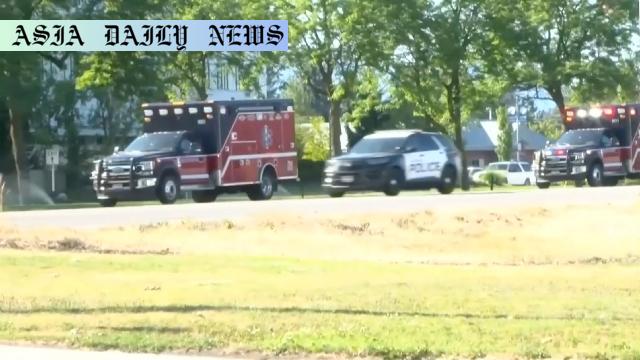Firefighters ambushed by sniper fire while responding to wildfire in Idaho, resulting in two tragic losses and an ongoing investigation.
At least two firefighters were killed during an ambush in Idaho.
Responders came under sniper fire while addressing a wildfire report on a mountain.
Authorities continue investigations into the assailant’s identity and motive.
An alert issued to local residents was later lifted.

Ambush While Responding to a Wildfire
The tragic events in Coeur d’Alene, Idaho, unfolded when first responders, answering a report of a wildfire on a mountain, were met with deadly sniper fire. The incident claimed the lives of at least two firefighters, and details of the motive and identity of the suspect remain under investigation. The ambush occurred early Sunday afternoon, shocking both the local community and the firefighting teams tasked with protecting the area.
Such acts of violence against disaster responders bring to light the unprecedented and unpredictable risks they face while performing their duties. In this case, the attack altered the initial response to a natural disaster into a grim encounter with an armed assailant. The impact of this tragedy is deeply felt by the families of the victims and their colleagues in the firefighting community.
Suspect and Motive Under Investigation
The situation escalated quickly, with authorities initially reporting ongoing gunfire as they communicated with reporters. Later, after combing the area, they discovered a man’s body along with weapons on the mountain. While no clear details about his identity or motive have emerged yet, investigators are prioritizing understanding the sequence of events leading up to this ambush. This is critical not only to bring closure to the case but also to ensure preventive measures in future responder deployments.
As emergency and investigative services tread cautiously in such volatile situations, it serves as a reminder of the importance of safeguarding public servants who risk their lives to save others. Community alerts were lifted after the situation was contained, granting some relief to local residents, but the long-term psychological toll may linger in the community.
Addressing The Broader Implications
The tragedy raises a broader question of the security measures for those serving in emergency response roles. Firefighters and first responders often enter risky, uncontrolled environments to do their jobs effectively. The added threat of targeted violence exacerbates an already dangerous occupation. It is crucial for lawmakers and local governments to evaluate whether additional protocols, such as specialized training or tactical support, should be allocated to these individuals.
This incident underscores the need for systemic and policy changes aimed at ensuring the safety of those who willingly endanger their lives to protect communities. It also highlights the importance of mental health counseling and support for surviving team members and first responders across the nation who witness such tragic instances.
The investigation will likely offer more insights into the attacker’s background and possible motives, shedding light on any prior indicators that might have signaled this event. While the authorities continue their efforts, the nation mourns the loss of two brave firefighters who made the ultimate sacrifice.
Commentary
A Tragic Loss for Frontline Responders
The recent tragedy in Idaho serves as a painful reminder of the sacrifices made by our first responders. Firefighters are often the unsung heroes of our communities, braving flames, hazardous environments, and now, unthinkably, armed assailants. The loss of two lives in such an unexpected and cruel manner underscores the risks involved in protecting others. It should strike a chord with every one of us, highlighting the need for stronger support systems for those serving in these stressful and dangerous roles.
The Unpredictable Nature of the Job
While firefighting itself is inherently risky, the thought of facing active gunfire during routine responses adds a new layer of complexity to their already challenging responsibilities. Emergency responders rush toward danger to protect lives and property. However, the idea of an intentional human threat amidst a natural disaster response reveals how unpredictable and perilous their mission can become.
Calls for immediate policy discussions to better secure emergency scenarios should not be delayed. From better equipment to potential collaboration with law enforcement during such high-risk responses, the nation owes it to frontline workers to ensure their safety as they ensure ours.
Honoring the Fallen and Taking Action
This incident also serves as a stark reminder of the courage firefighters embody daily. Their willingness to face not only natural disasters but also extreme human threats speaks volumes about their devotion. As the community of Coeur d’Alene processes their grief, the wider public must remember the pressure and unpredictability these roles entail. Honoring their loss should not only mean mourning but also pushing for accountability and changes that safeguard their peers in the future.
Moving forward, it’s critical to recognize the role we play in ensuring the safety of those who serve. Whether through advocacy for policies or showing gratitude, every effort counts in creating an environment where such tragedies can be prevented. In solidarity with the victims’ families and the firefighting community, we must demand better protections and celebrate the courage of these everyday heroes.


